#berbere butter
Text
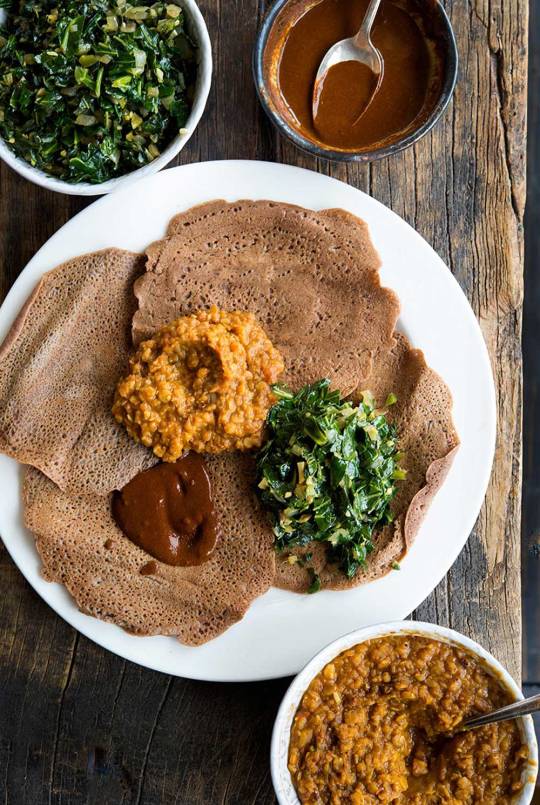
Ethiopian Red Lentil Stew and Collard Greens on Homemade Injera
#food#recipe#dinner#misir wat#gomen#collard greens#onions#tomatoes#lentils#butter#ginger#fenugreek#cardamom#cinnamon#turmeric#nigella seed#berbere#stew#garlic#bread#teff#ethiopian
84 notes
·
View notes
Text

Ethiopian Berbere Curry (Vegan)
#vegan#lunch#dinner#curry#ethiopian cuisine#east african cuisine#african cuisine#rice#tomatoes#green peas#berbere#red onion#coconut oil#coconut milk#broccoli#peanut butter#cilantro#sugar snap peas#❤️#💚
102 notes
·
View notes
Text


Doro Wat or wot is an Ethiopian and Eritrean stew that may be prepared with chicken, beef, lamb, a variety of vegetables, spice mixtures such as berbere (hot variety), and niter kibbeh, a seasoned clarified butter
18 notes
·
View notes
Photo

🇪🇹 Genfo is an Ethiopian porridge typically made by stirring toasted barley flour into boiling water. The well in the center of the porridge is filled with clarified butter and berbere spices. 📷: @imranmazar10 #tasteatlas #eatlikealocal #golocal #traditionalfood #Ethiopianfood #genfo (at Ethiopia) https://www.instagram.com/p/Cj057GfIuag/?igshid=NGJjMDIxMWI=
22 notes
·
View notes
Text

Eggs with Spices Clarified Butter
It is Ethiopian. The butter, or ghee, in this case was fine. Maybe we will notice a difference if we leave it out. But the peppers, onions, and ghee were nice. Added curry as I did not have Berbere.
I think this solidifies more onion in eggs. I think.
0 notes
Photo
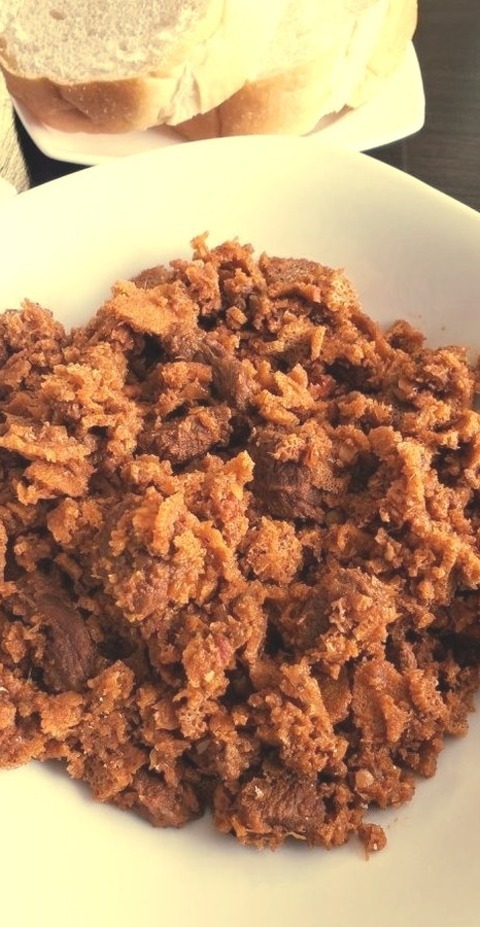
Beef - Ethiopian Firfir with Dried Beef Quanta Firfir
This well-known Ethiopian stew, Quanta Firfir, features dried beef and is prepared with tomatoes, berbere seasoning, injera, and spiced clarified butter.
0 notes
Text
Discovering the Secrets of Luxuriant Locks with African Hair Growth Oils
Introduction
Hair has long been a symbol of beauty, identity, and cultural significance across the globe. For centuries, people from diverse backgrounds have sought ways to enhance the health and appearance of their hair. In recent years, there has been a growing interest in traditional African hair growth oils, which are believed to hold the secrets to luxuriant locks. These oils have gained popularity not only for their potential to stimulate hair growth but also for their ability to improve overall hair health. In this exploration, we will delve into the fascinating world of African hair growth oil, uncovering their historical significance, ingredients, mechanisms of action, and the science behind their effectiveness.

The Historical Significance of African Hair Growth Oils
The use of hair oils in Africa dates back centuries, with various communities across the continent relying on natural ingredients to maintain the health and beauty of their hair. Hair has always held cultural significance in African societies, symbolizing identity, status, and spirituality. As a result, many traditional practices and remedies have emerged to promote hair growth and maintenance.
One of the most renowned African hair growth oils is argan oil, which is derived from the argan tree native to Morocco. This oil has been used for generations by Moroccan Berber communities for its remarkable hair-nourishing properties. It is rich in essential fatty acids, such as omega-6 and omega-9, as well as vitamin E, all of which contribute to hair health by moisturizing the scalp, strengthening hair follicles, and preventing breakage.
Another prominent African hair growth oil is castor oil, which has been used by various African cultures, particularly in West Africa. Castor oil is extracted from the seeds of the castor plant and is known for its high ricinoleic acid content. This acid is believed to stimulate hair follicles and promote hair growth. It is also a natural emollient, making it an excellent choice for moisturizing the scalp and hair.
The use of shea butter is also widespread in Africa. Shea butter is extracted from the nuts of the shea tree and has been traditionally used for both skin and hair care. It is rich in vitamins A and E, as well as fatty acids, making it an excellent choice for moisturizing and nourishing the hair. Shea butter can also help reduce scalp inflammation and improve hair elasticity.
The Ingredients of African Hair Growth Oils
African hair growth oils derive their efficacy from a rich blend of natural ingredients that have been carefully selected for their hair-nourishing properties. These ingredients are often sourced from indigenous plants that have been used for generations in African communities. Let's explore some of the key components commonly found in these oils:
Argan Oil: As mentioned earlier, argan oil is prized for its high content of essential fatty acids, particularly linoleic and oleic acids, which help nourish and strengthen hair. It also contains vitamin E, a potent antioxidant that promotes a healthy scalp.
Castor Oil: Castor oil is primarily composed of ricinoleic acid, which has been shown to increase blood circulation to the scalp and stimulate hair follicles. This oil also contains essential fatty acids, proteins, and vitamins that contribute to hair health.
Shea Butter: Shea butter is rich in vitamins A and E, which provide intense hydration to the hair and scalp. It also contains fatty acids, such as stearic and oleic acids, that help retain moisture and improve hair elasticity.
Coconut Oil: Although not exclusive to Africa, coconut oil is widely used in many African countries for hair care. It is rich in lauric acid, which has antimicrobial properties that can help maintain a healthy scalp. Coconut oil also penetrates the hair shaft, reducing protein loss and preventing damage.
Jojoba Oil: Jojoba oil closely resembles the natural sebum produced by the scalp, making it an excellent conditioner. It can balance oil production, prevent dandruff, and promote hair growth by keeping the scalp healthy.
Hemp Seed Oil: Hemp seed oil is rich in omega-3 and omega-6 fatty acids, which are essential for healthy hair growth. It also contains gamma-linolenic acid (GLA), which can reduce hair loss and improve hair thickness.
Aloe Vera: Aloe vera is a common ingredient in African hair growth oils due to its soothing and moisturizing properties. It can alleviate scalp irritation, reduce dandruff, and promote a healthy environment for hair growth.
Black Seed Oil: Black seed oil, also known as nigella sativa oil, has been used in Africa for centuries for its various health benefits, including hair care. It contains thymoquinone, an antioxidant that may promote hair growth and reduce hair loss.
Mechanisms of Action: How African Hair Growth Oils Work
The effectiveness of African hair growth oils lies in their ability to address multiple factors that influence hair health and growth. Understanding the mechanisms of action behind these oils is crucial to appreciating their benefits:
Scalp Nourishment: African hair growth oils are rich in nutrients that nourish the scalp. A well-nourished scalp is essential for healthy hair follicles and optimal hair growth. These oils penetrate the scalp, delivering essential fatty acids, vitamins, and minerals directly to the roots.
Hair Follicle Stimulation: Many of these oils contain compounds like ricinoleic acid (found in castor oil) and thymoquinone (found in black seed oil) that stimulate blood circulation to the hair follicles. Improved blood flow can enhance the delivery of nutrients to the hair follicles, promoting hair growth.
Moisturization: Hydration is crucial for hair health. Dry and brittle hair is more prone to breakage and damage. African hair growth oils, with their rich fatty acid content, provide intense moisture to both the hair shaft and the scalp, preventing dryness and promoting hair elasticity.
Reduction of Inflammation: Inflammation of the scalp can lead to hair loss and hinder hair growth. Some oils, such as shea butter and aloe vera, possess anti-inflammatory properties that can soothe the scalp and create an optimal environment for hair growth.
Protection from Environmental Damage: Hair is constantly exposed to environmental stressors like UV radiation, pollution, and harsh weather conditions. The antioxidants present in these oils, such as vitamin E and thymoquinone, can protect hair from oxidative damage.
Repair and Strengthening: African hair growth oils help repair damaged hair by sealing split ends and preventing further breakage. This not only improves the appearance of the hair but also enhances its overall strength.
Balancing Oil Production: Some oils, like jojoba oil, can regulate the production of sebum, the natural oil produced by the scalp. Balancing oil production can prevent greasy hair while ensuring the scalp remains moisturized.
The Science Behind African Hair Growth Oils
While the historical use and anecdotal evidence of African hair growth oils are compelling, it is essential to consider the scientific research that supports their efficacy. Over the years, several studies have investigated the impact of various ingredients found in these oils on hair health and growth:
Castor Oil: A study published in the "Journal of Cosmetic Science" in 2003 found that castor oil increased hair growth in mice. The researchers attributed this effect to the ricinoleic acid in castor oil, which stimulated prostaglandin E2 production in the scalp. Prostaglandin E2 is known to promote hair growth.
Argan Oil: Research published in the "Journal of Ethnopharmacology" in 2013 explored the effects of argan oil on hair health. The study found that argan oil improved the elasticity of hair and reduced hair loss. This was attributed to the high content of essential fatty acids and vitamin E in argan oil.
Shea Butter: A study published in the "Journal of Oleo Science" in 2017 investigated the impact of shea butter on hair moisture. The results showed that shea butter effectively increased hair moisture levels, making it an excellent choice for dry and damaged hair.
Coconut Oil: Research published in the "Journal of Cosmetic Science" in 2005 examined the ability of coconut oil to penetrate the hair shaft. The study found that coconut oil was one of the most effective oils at reducing protein loss in hair. This makes it a valuable ingredient for preventing damage and breakage.
Black Seed Oil: While limited, some studies have explored the potential hair growth-promoting effects of thymoquinone, the active compound in black seed oil. One study published in "Journal of Medicinal Plants Research" in 2012 found that thymoquinone increased hair growth in mice.
Hemp Seed Oil: Hemp seed oil's high content of omega-3 and omega-6 fatty acids has been associated with improved hair health. These fatty acids play a crucial role in maintaining the structural integrity of hair.
It is important to note that while these studies provide valuable insights into the potential benefits of individual ingredients, the effectiveness of African hair growth oils may vary depending on the specific blend of ingredients and individual hair types. Moreover, human studies on the direct application of these oils to hair and scalp are limited, and more research is needed to establish their efficacy conclusively.
Conclusion
African hair growth oils have a rich history and a growing reputation for promoting luxuriant locks and maintaining overall hair health. Drawing upon traditional wisdom and the power of natural ingredients, these oils offer a multifaceted approach to improving the condition of hair and stimulating growth. The ingredients found in these oils, such as argan oil, castor oil, shea butter, and others, have been scientifically studied and shown to have potential benefits for hair health.
However, it's important to recognize that individual responses to these oils may vary, and more research is needed to fully understand their mechanisms of action and effectiveness in different hair types and conditions. Additionally, while African hair growth oils can be a valuable addition to a hair care routine, they should not be viewed as miracle solutions for hair loss or other serious hair and scalp issues.
0 notes
Text

Sega Wat
#food#recipe#dinner#stew#sega wat#beef#eggs#onions#tomatoes#garlic#ginger#paprika#berbere#niter kibbeh#butter#gluten free#ethiopian
29 notes
·
View notes
Text
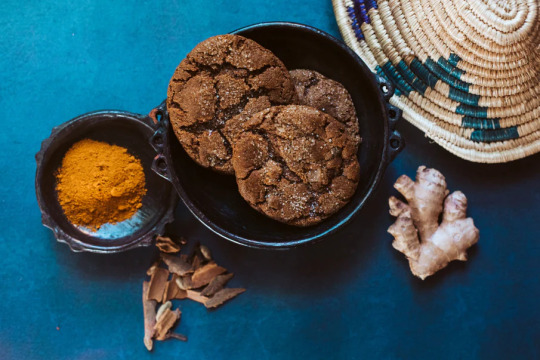
Berbere And Ginger Cookies (Vegan-Friendly & Gluten-Free)
to make it vegan, opt for flax egg & vegan butter or coconut oil
#vegan#gluten free#desserts#cookies#teff flour#rice flour#tapioca starch#berbere#ginger#cinnamon#turmeric#molasses#flax seeds#cloves#vegan butter#coconut sugar
12 notes
·
View notes
Text
Recipe for Ethiopian Firfir with Dried Beef Quanta Firfir
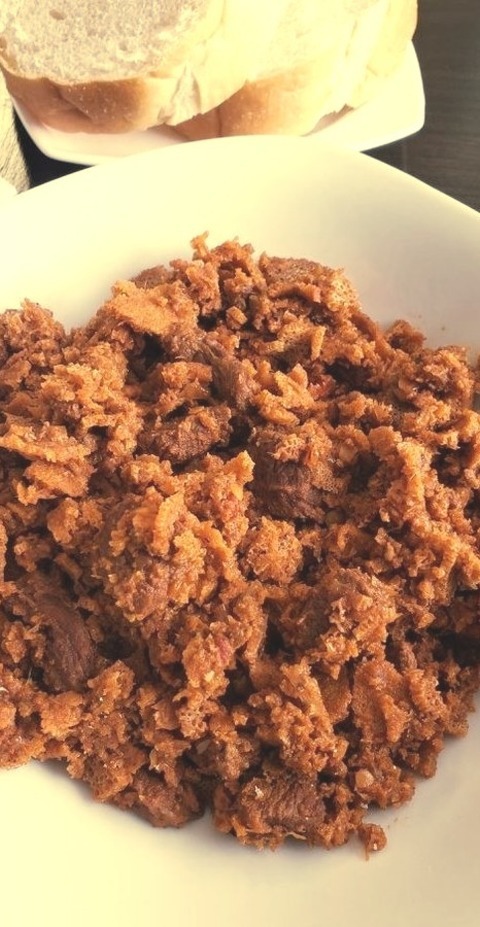
This well-known Ethiopian stew, Quanta Firfir, features dried beef and is prepared with tomatoes, berbere seasoning, injera, and spiced clarified butter.
0 notes
Text

Misir wat is a traditional Ethiopian dish and a type of wat or Ethiopian stew. In order to prepare it, onions are sautéed in niter kibbeh clarified butter, followed by garlic, ginger, tomato paste, berbere spices, stock, and lentils. The stew is slowly simmered until the lentils become soft, and the dish is then usually enriched with a bit more berbere spices and niter kibbeh near the end of cooking.
Misir wat is served warm and it's usually accompanied by injera flatbread on the side, which is used to scoop up the lentils. If desired, the stew can be garnished with a dollop of creamy Ayib cheese on top.
5 notes
·
View notes
Photo
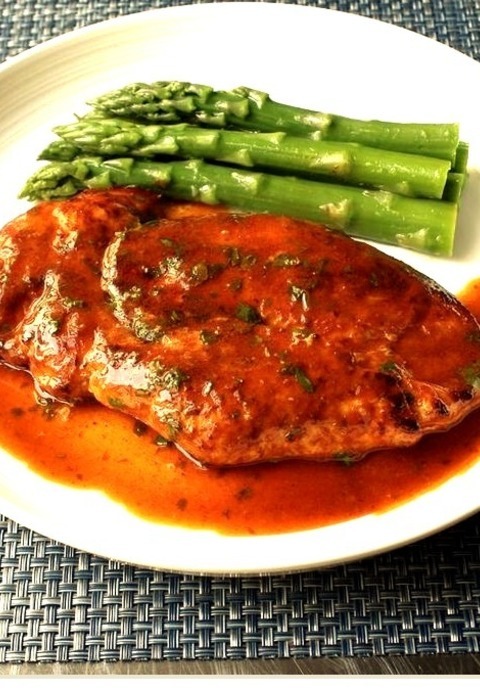
Berbere Spiced Chicken Breasts Recipe
Chef John uses the traditional Ethiopian spice blend to make a flavorful spiced chicken breast that is ready to serve in less than 30 minutes. 1/2 teaspoon berbere spice blend or to taste, 1 tablespoon chopped cilantro, 1 skinless boneless chicken breast half - lightly pounded to an even thickness, 1 tablespoon berbere spice blend or to taste, 1/4 cup chicken broth or as needed, 2 teaspoons butter, Salt to taste, 1/3 cup coconut milk, 1 teaspoon kosher salt, 2 teaspoons tomato paste, 1 lime juiced
0 notes
Photo

Ethiopian Firfir with Dried Beef Quanta Firfir Recipe
This well-known Ethiopian stew, Quanta Firfir, features dried beef and is prepared with tomatoes, berbere seasoning, injera, and spiced clarified butter. 4 ripe tomatoes chopped, 1 tablespoon garlic paste, 2 tablespoons Ethiopian berbere seasoning, 2 red onions chopped, 1/3 cup vegetable oil, 3 cups water divided, 1/2 cup Ethiopian kibbeh, 2 teaspoons salt, 2 pieces injera, 14 ounces dried beef
0 notes
Text
Äthiopische Gewürzbutter (Niter Kibbeh)

Die geklärte Gewürzbutter, auch bekannt als Niter Kibbeh oder Niter Qibe, ist eine wichtige Grundzutat in der äthiopischen und eritreischen Küche.
Niter Kebbeh - äthiopische Gewürzbutter
Niter Kibbeh wird aus Butter, verschiedenen Gewürzen und Kräutern hergestellt und eignet sich hervorragend für die Zubereitung von verschiedenen Gerichten. Die Gewürzbutter hat ähnliche Eigenschaften wie das Ghee aus der indischen und ayurvedischen Küche. Auch für die Herstellung des Niter Kibbeh wird die Butter geklärt. Das bedeutet, das Milchprotein wird verkocht und abgeschöpft, so dass nur noch das reine Butterfett, bzw. das Butteröl übrig bleibt.
Wenn Du schon mal Ghee selbst gemacht hast, kennst Du die Zubereitung schon, denn sie ist sehr ähnlich. Nur, dass in dieser Variante Knoblauch, Zwiebeln und verschiedene Gewürze mit gekocht werden.
Die Zubereitung ist sehr einfach: Zunächst schmilzt man gesalzene Butter in einem Topf bei mittlerer Hitze. Währenddessen werden verschiedene Gewürze wie Kardamom, Zimt, Nelken, Bockshornkleesamen, Koriandersamen, schwarze Pfefferkörner, Muskat und Kurkuma in einer Pfanne geröstet, um ihr Aroma zu entfalten. Danach werden gewürfelte Zwiebeln, Knoblauch und Ingwer hinzugefügt und alles für eine Stunde bei niedriger Hitze gekocht. Die Mischung wird dann durch eine Mulltuch oder einen Kaffeefilter in einen Behälter gegossen, abgekühlt und luftdicht verschlossen. Ich nehme dafür auch Kuchenrolle und lege diese in mehreren Schichten in ein Sieb. Auch das funktioniert. Die Niter Kibbeh Gewürzbutter kann bei Zimmertemperatur über Wochen und Monate aufbewahrt werden.
Niter Kibbeh verleiht Gerichten einen einzigartigen Geschmack und kann als Basis für verschiedene traditionelle äthiopische Gerichte verwendet werden, zum Beispiel:
- Äthiopischer Grünkohl (GomenWot)
- Äthiopische Berbere-Linsen (Wot)
Das Rezept für die äthiopische Gewürzbutter Niter Kibbeh
Niter Kebbeh - geklärte Gewürzbutter aus Äthiopien
Zutaten für Niter Kibbeh
(ergibt etwa 175g Gewürzbutter)
- 250 g ungesalzene Butter
- 1 Zimtstange
- 2 Kardamomkapseln
- 1 Teelöffel Kreuzkümmelsamen
- 3 ganze Nelken
- 1 Teelöffel Bockshornkleesamen
- 1 Teelöffel Koriandersamen
- 5 schwarze Pfefferkörner
- 1/2 Teelöffel Muskatnuss
- 1/2 Teelöffel Kurkuma
- 1 kleine Zwiebel, geschält und fein gehackt
- 4 Knoblauchzehen, geschält und fein gehackt
- 1 kleines Stück Ingwer, geschält und fein gehackt
- 10g Ingwerwurzel
- 1 Teelöffel getrocknete Kräuter (Petersilie/ Basilikum/ Oregano/ Thymian)
- Salz und
Äthiopische Niter Kebbeh - geklärte Butter mit Gewürzen
Anleitung für Niter Kibbeh
- Die Butter in einem Topf bei mittlerer Hitze schmelzen lassen.
- In der Zwischenzeit die Gewürze in einer Pfanne ohne Öl rösten, bis sie duften. Die Zimtstange, Kardamomkapseln, Kreuzkümmel, Nelken, Bockshornkleesamen, Koriandersamen und schwarzen Pfefferkörner in die Pfanne geben und rösten, bis sie aromatisch sind.
- Die Zwiebel, Knoblauch und Ingwer hinzufügen und weitere 5 Minuten köcheln lassen.
- Die Gewürzmischung vorsichtig zur geschmolzenen Butter geben und bei niedriger Hitze 30-40 Minuten köcheln lassen, bis die Butter klar ist und die Gewürze ihr Aroma an die Butter abgegeben haben.
- Die Gewürzbutter durch ein feines Sieb oder eine Mullwindel in einen Behälter gießen und abkühlen lassen.
- Die Gewürzbutter abdecken und im Kühlschrank aufbewahren.
Niter Kebbeh - äthiopische geklärte Butter mit Gewürzen
Lesen Sie den ganzen Artikel
0 notes
Link
#anditisagreatsourceofcomplexcarbohydrates#andprotein.Whetherservedasasidedishoramaincourse#Chinese#couscousisadeliciousandhealthyadditiontoanymeal.#CouscousisapopularNorthAfricandishmadefromtinygranulesofdurumwheatorsemolina.Itisaversatileingredientthatcanbeusedinavarietyofdishes#fiber#fluffytextureandnuttyflavor#food#fromsaladsandstewstodesserts.Couscousisknownforitslight#history#Indian#indianRestaurants#IndianSpices#meal#Restaurants#Spices#uk
0 notes
